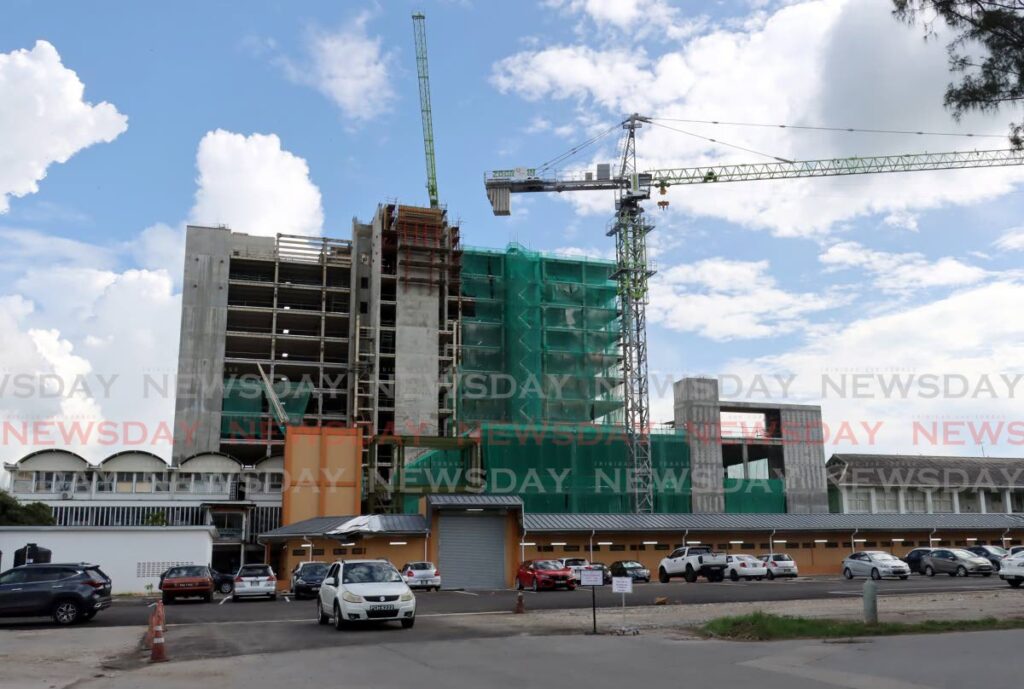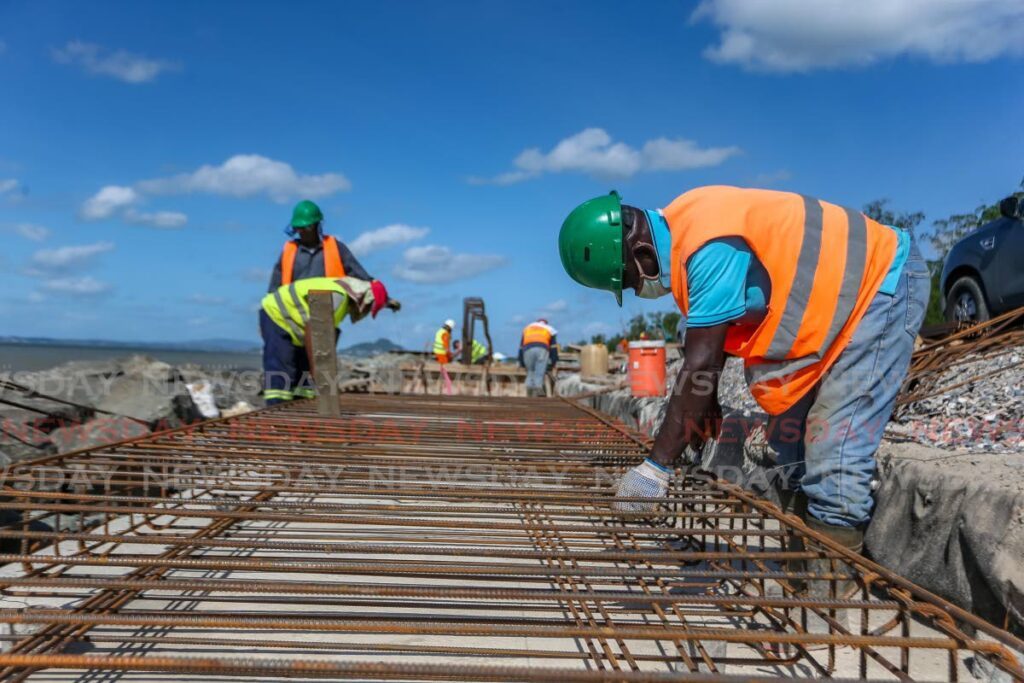Contractors Association budget wishes: Issue tenders early so we can plan ahead

THE CONSTRUCTION sector depends heavily on the state’s projects to stay afloat. It was a ballpark figure, but Contractors Association President Glenn Mahabirsingh said in a conversation with Business Day that close to 80 per cent of the industry’s revenue comes from tenders for state projects.
He said in the next fiscal year, recently passed procurement legislation will play a major role in how the construction sector will do its business. This is why Mahabirsingh is calling for government to stick to the legislation, particularly with regard to divulging future government development plans and projects. He said the government needs to publicise plans and tenders early, so the construction sector can make its own plans for the next fiscal year.
He also called for government to have a wide range of projects that would be accessible to contractors working at different levels and capacities.
We need to plan ahead
Section 27 of the Procurement Act stipulates that procuring entities, including Government, must publish information on all planned procurement activities for the next year no later than six weeks after the approval of the national budget.
Mahabirsingh said this will give contractors an advantage, in that they will be able to plan ahead for projects and tenders in the coming year.
“This will be first time the industry will be getting some sort of indication of the projects in the pipeline,” he said. “Therefore the industry can plan and understand what the next 12 months would look like and they can target specific projects in specific areas, as opposed to chasing every project that comes up.”
He said before the passing of the procurement legislation, contractors had to listen out for plans highlighted by government in the budget, and keep an eye out for tenders issued in local publications.
“… but the plans would not be granular, for strategic planning,” Mahabirsingh said. “This fiscal year, I am sure that everyone would be looking for that procurement plan.”
He also called for early issuance of tender notices and documents. He told Business Day he hoped tender documents would be issued and respondents evaluated and even awarded with contracts by early November or December, so that projects in the pipeline could begin early in January and take advantage of the dry season.
“There are a lot of programmes, such as road, infrastructure and drainage projects, that could be affected by weather conditions. If earlier tenders take place, that would mean contractors could be on the ground from early January,” he said.

Mahabirsingh to contractors: Crunch your numbers, have foresight
Mahabirsingh said contractors need to have foresight in order to plan projects around the uncertain global economy, noting that global shocks affect construction costs. He added that cost control will be key to balancing costs and materials in an uncertain global environment over the next year.
He said a year ago, the Ukraine war affected construction locally because of supply challenges with rebar and lumber – two key elements for any building. Now, over the past week, with oil prices shooting north of US$90, the prices of PVC materials may go up, as well as freight and transport.
“You can bid for a job at a certain price in November and December, and things could change in January. Contractors need to anticipate where the market will be in five months or six months from now.
“When a contractor is awarded a contract and he goes into execution, he needs to do what is called cost control – to plan the job and understand what are the costs he will incur, so the contractor would know where to adjust, where he would need to drive productivity or reduce our wastage of materials or, where there is a need to, possibly explore where you could reuse materials and things like temporary materials for work.”

More contractors participating
Mahabirsingh said thanks to the proclaimed procurement legislation more contractors are participating in the tender processes, which means, as more tenders are issued the industry will become more competitive. But he called for government to provide a wide spectrum of tenders to attract contractors at different levels in the construction sector.
“We have major programmes in terms of road reconstruction, rehabilitation and maintenance. We have seen HDC put out tenders for a number of design, build and finance projects, which is definitely one that will employ a number of people, including masons, carpenters and labourers.”
He added that there would also be programmes coming from Government to improve drainage systems.
In the commercial sector, several entities have also put out tenders or are in the process of putting out tenders through Udecott.
“So next year should be an active year,” he said.
In July, Finance Minister Colm Imbert said based on the information he received, 7,889 suppliers were entered in the procurement register, 861 were pre-qualified, 1,086 have pending pre-qualifications and 32,357 lines of businesses were pending pre-qualification by public bodies.
Mahabir, noting that the association celebrates its 55th year this year, said TT’s contractors have years of experience which makes the industry in TT very competitive, so much so that they are now exporting their knowledge and expertise.
“Data from our association says our contractors have projects in Guyana, Grenada, St Lucia and other areas up the islands. Our association has 55 years of building local capacity in terms of competency and know-how,” he said. “The construction industry is one sector that could stimulate the economy, create a large amount of employment and diversify from energy.
“This is why the industry needs to have an even mix of projects, for all the players in the industry to be engaged and therefore have a multiplier effect in terms of people being employed."


Comments
"Contractors Association budget wishes: Issue tenders early so we can plan ahead"